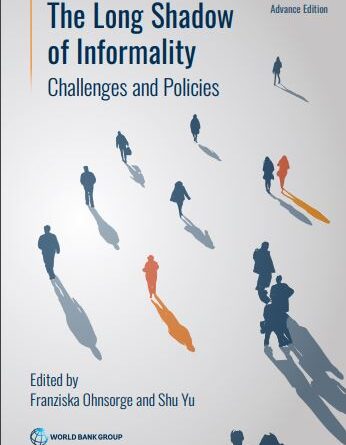The Long Shadow The Long Shadow of Informality Edited by Challenges and Policies
By Franziska Ohnsorge and Shu Yu
In emerging market and developing economies (EMDEs), far too many people and small enterprises operate outside the line of sight of governments—in a zone where little help is available to them in an emergency such as the COVID-19 crisis. This “informal” sector constitutes more than 70 percent of total employment in these countries and roughly one-third of output.
Policy makers have long had good reasons to worry about this sector: Its participants are vulnerable even under normal conditions. Informal businesses rely heavily on family members and moneylenders for working capital, leaving them exposed to sudden income disruptions. These enterprises constitute 72 percent of firms in the services sector. Informal workers are predominantly women, and they are usually young and low-skilled. When they lose their jobs or suffer severe income losses, they often have no recourse to social safety nets.
COVID-19, however, has heightened the need for prompt and comprehensive action. The pandemic increased global poverty for the first time in decades—and it hit informal firms and informally employed workers particularly hard: they struggled to adjust to lockdowns and the shift to business connected over the internet. Data on this matter may not be fully available for some time, but the damage to households and firms in the informal sector poses a significant threat—to the global economic recovery and to long-term efforts to achieve green, resilient, and inclusive development.
Widespread informality hampers development progress in a variety of ways. It is broadly associated with weaker economic outcomes. Countries with larger informal sectors have lower per-capita incomes, greater poverty, less financial development, and weaker growth in output, investment, and productivity. GDP per capita in countries with above-average informality tends to be just one-quarter to one-third the GDP per capita of countries with below-average informality. Moreover, informality curbs government revenues, constraining governments’ ability to provide services, conduct countercyclical policies, service debt, or implement crisis-response measures. Measured as a percentage of GDP, government revenues in EMDEs with above-average informality were 5 to 12 percentage points lower than those of EMDEs with below-average informality between 2000 and 2018. Not surprisingly, higher informality was also associated with lower public spending on education and health, contributing to the slower accumulation of human capital.
Get the book here
336 views










